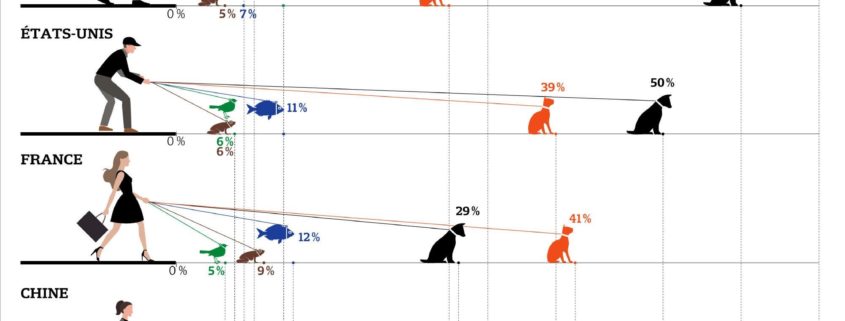Animalism
Dog at the table, fish on the plate
‘And what if the dog bites one of the customers? How do we know the dog isn’t sick?’ utters José Manuel Esteves, director of the Hotel and Restaurant Association (AHRESP). ‘Than we will be responsible!’
Eunice Marcelino, attorney at the Public Ministry is less concerned. ‘Pets are already allowed on terraces and that has never raised any concerns.’
 As of next week, a new law enters into force allowing pets in restaurants and bars. ‘With domestic animals, one automatically thinks of cats and dogs but in our legal proposal domestic is not strictly defined’, explains Cristina Rodriguez, MP of the party for Persons, Animals, and Nature (PAN) and one of the submitters of the proposal.
As of next week, a new law enters into force allowing pets in restaurants and bars. ‘With domestic animals, one automatically thinks of cats and dogs but in our legal proposal domestic is not strictly defined’, explains Cristina Rodriguez, MP of the party for Persons, Animals, and Nature (PAN) and one of the submitters of the proposal.
This implicates that any pet is allowed as long as the owner of the restaurant – who always has the final say – raises no objections and the animal is leashed. ‘But the law is of course drafted with dogs in mind, which usually accompany their owners’, declares Maria do Céu Sampaio, president of the League for Animal Rights.
 In most European countries domestic animals are tolerated in food courts.
In most European countries domestic animals are tolerated in food courts.
France is the most pet-friendly in this respect, Scandinavia least.
Small dogs are in general no problem in Italy and Germany but for large dogs, eyebrows are raised.
More than half of the Portuguese households have a pet, which is often considered as ‘member of the family’ or ‘friend.’ Most popular are dogs (42%), ranking well before cats (22%), birds (18%) and fish (5%).
They consume on average around 15% of the family budget.
 According to an investigation in April by the Association for Consumer Protection (DECO), only 20% of the owners consider taking their four-legged friend out to dinner.
According to an investigation in April by the Association for Consumer Protection (DECO), only 20% of the owners consider taking their four-legged friend out to dinner.
‘One of the favorable side effects of this new law might be, that owners are now more motivated to raise their dogs properly, concludes Maria do Céu.
BOM FIM DE SEMANA ENJOY THE WEEKEND (pic SAPO/Público)



